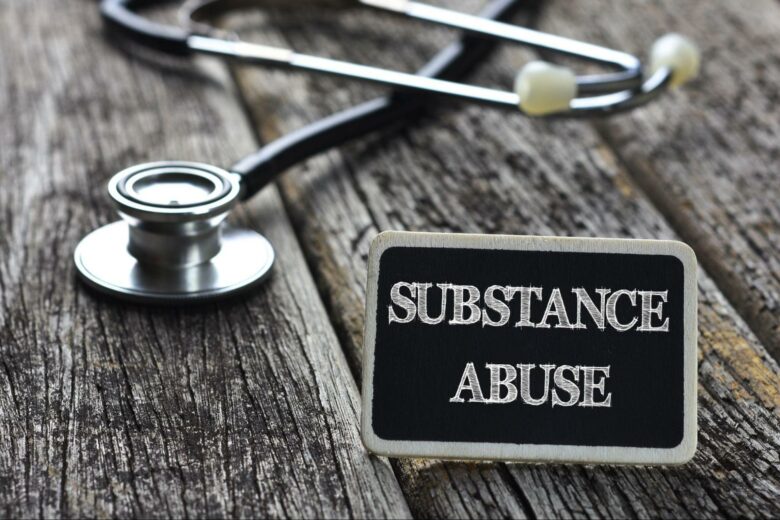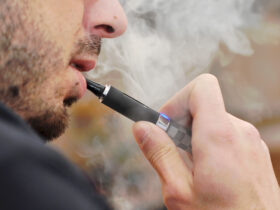Substance abuse can be a severe issue that has far-reaching consequences. It can affect your physical, mental, and social well-being, impairing the quality of your life and those closest to you.
Although drug abuse may seem like an impossible challenge, there is hope – recovery from substance abuse is possible with help from qualified professionals, addiction treatment programs like outpatient rehab Los Angeles, and from supportive people.
This blog post will discuss available recovery options and some additional stages to help you break free from substance abuse and regain control of your life.

Image Source: https://stock.adobe.com/images/medical-concept-substance-abuse-word-written-on-blackboard-with/111061152
What Is Recovery From Substance Abuse?
At its core, recovery from substance abuse is breaking free from dependence on drugs and alcohol. It often involves learning to live a healthier lifestyle, building positive relationships, and developing strategies for managing stressors that can lead to relapse. Recovery is an ongoing process that takes time and commitment. There are many different approaches to recovery depending on your individual needs.
There are several potential treatments for drugs or alcohol and leading an abstinent life. This means abstaining from drug or alcohol use, including prescription medications, while in substance use disorder recovery. It also involves learning new coping skills to help you manage stress and other triggers that lead to relapse.
Mental Health Services Administration (SAMHSA) reports that recovering individuals may benefit from a combination of approaches, including behavioral therapy, counseling, medications, and support groups like Alcoholics Anonymous (AA).
What Are Your Options?
Depending on your individual needs and the severity of your substance use disorder, various treatment options are available. Here are some of the most common:
- Detoxification
- Inpatient Rehabilitation
- Outpatient Rehabilitation
- Support Groups
- Self-Help Programs
- Medication-Assisted Treatment
Detoxification
It is the process by which your body is cleansed of alcohol abuse or drug addiction. It usually lasts anywhere from a few days to several weeks. It is followed by an inpatient rehabilitation program, whether residential or outpatient.
Detoxification can be used to rid your body of potentially hazardous toxins. Depending on your chosen method, it can involve changing and improving your dietary habits, exercising, abstaining from certain activities, or using herbal and homeopathic alternatives.
Consult a healthcare practitioner or a treatment center before you begin any detoxifying regimen. They will advise you on the best body type and lifestyle method. Detoxing may cause uncomfortable side effects; drinking plenty of water helps flush out toxins faster, reducing their impact on the body.
Inpatient Rehabilitation
Inpatient Rehabilitation involves staying in a facility for some time while receiving treatment, such as individual counseling, group therapy sessions, and other activities. This treatment is often the most effective in helping someone achieve long-term sobriety.
Inpatient programs provide the highest level of care for those struggling with addiction recovery. These programs require the patient to stay at the facility for a defined period, usually from 30 days to several months. Patients receive 24-hour medical supervision and ongoing support from experienced counselors and other professionals during this time.
Inpatient programs typically offer various services, including individual and group therapy, activities designed to help patients build self-esteem, vocational counseling, and life skills training. Medication management may also be provided to manage symptoms and reduce the risk of relapse.
Outpatient Rehabilitation
Outpatient Rehabilitation involves attending group or individual counseling sessions while living at home or in a sober living facility.
Outpatient addiction treatment programs at Boynton Beach provide a more flexible approach to addiction recovery, which is ideal for those with work or family obligations. Patients in an outpatient program receive the same level of therapeutic care as those in an inpatient facility but are not required to stay overnight.
Outpatient programs allow individuals to continue working, attending school, and fulfilling other life responsibilities while receiving substance abuse treatment. Outpatient care can be provided in various settings, including hospitals, clinics, and community-based organizations.
Support Groups
Support groups are an essential part of recovery for those who seek treatment because they provide a place for you to share your story, receive support from others in the same situation, and learn new strategies for dealing with your addiction.

Image Source: https://stock.adobe.com/images/sadness-in-support-group/340805169
Some people find it helpful to attend meetings more frequently, especially after completing an addiction treatment program. Many different support groups are available, such as Alcoholics Anonymous (AA), Narcotics Anonymous (NA), and SMART Recovery®.
Self-Help Programs
Self-help programs are designed to help people in recovery become more independent and self-reliant. Self-help recovery programs, such as 12-step programs, Cognitive Behavioral Therapy (CBT), mindfulness meditation, yoga, and other mental health services, promote healthy coping skills.
Medication-Assisted Treatment
Medication-Assisted Treatment (MAT) is an approach for managing opioid and substance use disorders. MAT can involve medications such as buprenorphine or naltrexone, which block the effects of opioids and reduce cravings, as well as counseling and other support services.
The 5 Stages Of Recovery
Recovery from Substance Abuse is necessary and not one that can be done overnight. To ensure one is going through the proper steps to reach the goal of healing and improved health, 5 stages should be followed.
Admit you have a problem:
The first stage of recovery is the most challenging but also the most important: admitting that you have a substance abuse problem and need help.
Reach out for help:
Once you’ve admitted an issue, seeking professional help is vital. Consider seeing a psychologist, psychiatrist, or another mental health professional to help you recover.
Develop coping strategies:
Seeking help is just the first stage in recovery; developing healthy coping strategies for dealing with cravings and complex emotions that can arise during treatment is also essential. This could include relaxation exercises, meditation, and other methods for managing stress.
Build a strong support network:
Recovery is often a team effort, so having a solid support system can help make the journey easier. Connect with family members and friends willing to listen and support you through your recovery process.
Establish healthy habits
When recovering from addiction, developing healthy habits can be essential to maintaining sobriety. This could include exercise, eating right, getting enough sleep, and engaging in activities you enjoy.
Conclusion
Many different strategies and techniques can be used successfully in addiction treatment. Whether you choose outpatient or inpatient treatment, support groups, self-help programs, medication-assisted therapy, or any combination of these approaches, the most important thing is to commit to your recovery and stay motivated throughout the process. With time and dedication, you can achieve lasting sobriety and improved health.
Article by Born Realist






